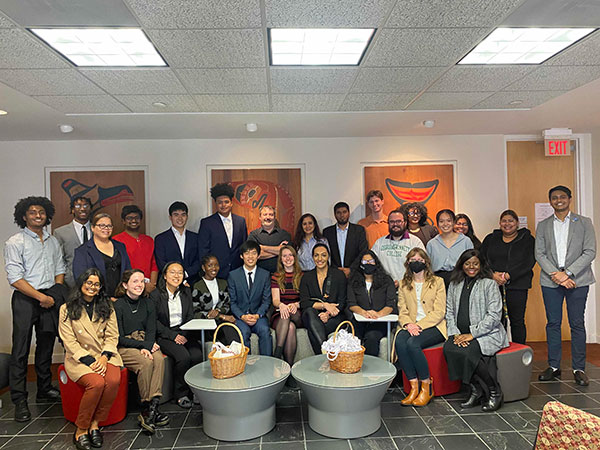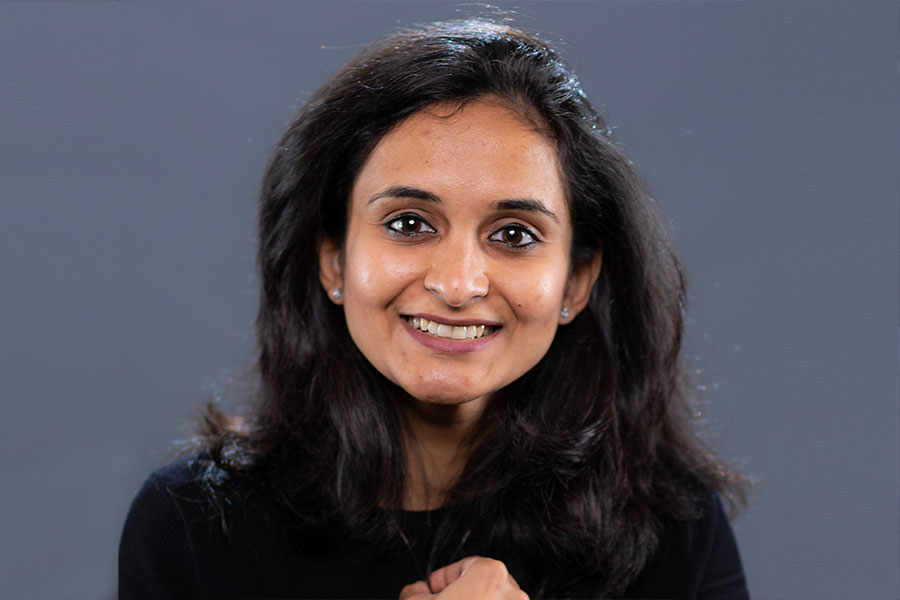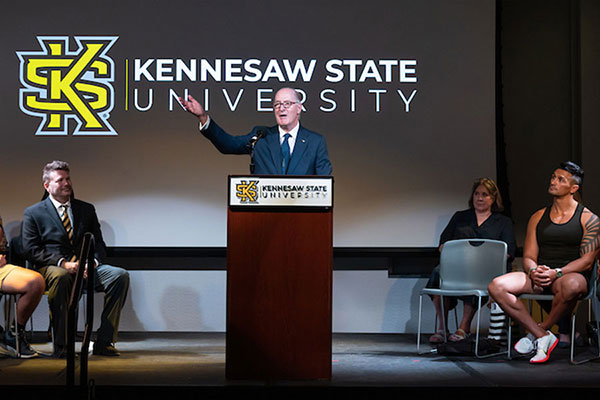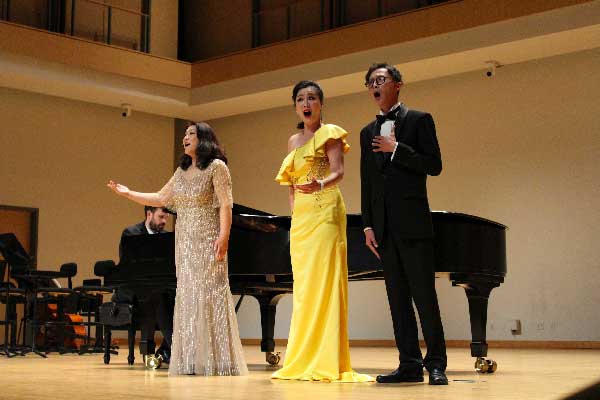DGA Seed Grants Make a Difference for Southeast Asian Fellows
KENNESAW, Ga. | Jun 12, 2017

Twenty-two young Asian leaders plan to affect positive social change in their home countries thanks to training and project seed funding provided by Kennesaw State University.
Kennesaw State awarded 22 seed grants, each totaling $275, at the Young Southeast Asian Leaders Initiative (YSEALI) Summit held at Yale-NUS College in Singapore May 16th, 17th and 18th. The event was organized by Kennesaw State’s Global Education in partnership with Yale-NUS College and the U.S. Department of State.
Among the projects partially funded were plans to provide job training to women in Thailand, enhance education opportunities for orphans in Indonesia, and develop a more humane approach to treating drug addiction in the Philippines.
Each of the 22 grant recipients previously participated in the YSEALI Institute on Civic Engagement held at Kennesaw State University in February and March 2017. YSEALI is the U.S. federal government’s signature program for relationship building with the Association of Southeast Asian Nations (ASEAN). Traveling from Indonesia, Laos, Malaysia, Myanmar, the Philippines, Thailand, Vietnam, Cambodia, and Brunei, the 22 fellows lived on campus for four weeks studying civil and human rights while developing their community service project proposals.
The YSEAL summit in Singapore was held two months after the fellows returned home. According to Dr. Lance Askildson, Kennesaw State’s Vice-Provost of Global Affairs, Chief International Officer, and the summit organizer, the two-month gap between the end of the YSEALI Institute and the start of the summit gave the fellows the chance to refine their proposals before submission.
“While [the fellows] were with us, we gave them a lot of academic and intellectual content,” he said. “We cultivated in them dispositions towards themes of conflict management and civic engagement, and then sent them back home to interpret the local context. The projects ended up changing into something much more nuanced once they got home and started having conversations with local stakeholders.”
This approach led the fellows to develop fully-formed, actionable project proposals like the one written by Filipino YSEALI fellow Madeiline Aloria. Her project will build a partnership between six key human rights and educational organizations, with the goal of creating workshops and media activities to encourage the Filipino government to adopt a more health-centric approach to fighting drug addiction.

“[Filipino President Duterte’s] war on drugs receives flak from human rights groups, health advocates, and ordinary citizens,” Aloria wrote. “The current strategy concentrates both informational and operational powers to the police and, in the end, results in abuses.”
Aloria has already received non-financial support from several organizations in the form of meeting space and offers to provide guest speakers.
Another project that received a Kennesaw State seed grant will develop educational programs for orphanages in Indonesia, while simultaneously encouraging more members of the general public to volunteer their time and money to improve living conditions for the country’s orphans.

“Based on my field visits and interviews with several orphanages, most orphanages don’t have guidelines regarding educational activities or development programs for their members,” wrote Barnev Theodore Soukotta, the proposal’s author. “This implies most orphanages function only as shelters, not actively empowering and developing children.”
Soukotta calls his project Schools of Hope, and already has a five-person team working to create programs at a facility in Ambon City. He plans to expand to additional orphanages in the following months.
The fellows presented their proposals to a panel of Kennesaw State faculty, Yale-NUS College faculty and students, and YSEALI fellows who participated in the previous year’s Kennesaw State YSEALI Institute.
“This forced all the fellows to think through in granular detail whether what they were proposing made sense,” Askildson said. “They knew they were presenting not just to KSU faculty and YSEALI grant fellows, but to all these outsiders. It put a different pressure on them and required them to describe what they wanted to do with greater precision.”
Summit keynote speaker Kiran Ahuja, the former executive director of the White House Initiative on Asian Americans and Pacific Islanders under President Obama, was impressed by the quality of the project proposals, as well as with the summit itself.
“It was clear that the graduates had put so much time and energy into their projects, for which we will see the benefits in the months ahead,” she said. “The joint KSU and Yale-NUS symposium in Singapore was highly successful, and I could tell how much Dr. Askildson and his team care about these young leaders and are committed to their success.”
In addition to providing a platform to present their proposals, the Singapore summit also reunited the fellows with Kennesaw State honors students with whom they worked during the YSEALI Institute. While at Kennesaw State, the fellows participated in the Honors College course, Cultivating a Global Intellect, taught by Dr. Askildson. Three of the Kennesaw State students from that class traveled to Singapore for the summit, where they moderated panels, registered attendees, assisted with conference logistics, and participated in cultural activities with the fellows.
“My interaction with the YSEALI fellows was one of a kind,” said Conner Sutton, a Kennesaw State English major who moderated a panel titled Youth Education and Engagement. “The students are so driven and motivated. They don’t take education for granted like some do in the United States.”

Listening to the fellows outline their community service projects exposed Sutton and the other honors students to cultural perspectives they had never considered.
“It’s easy to make decisions at the expense of others that you haven’t met,” he said. “But when you travel and expose yourself to new cultures, you start to develop a global understanding, as opposed to a regional bias.”
Sutton said the experience affected him so much that he now wants to teach abroad once he graduates.

While 2017 was the second year in a row that Kennesaw State hosted cohorts of YSEALI fellows, it was the first time that the University organized a follow up summit. Based on the event’s success, Askildson made plans with incoming Yale-NUS President Tay Yung to return next year with the 2018 YSEALI fellows.
“We want to not just replicate what we did this year, but to grow it,” Askildson said. “We want to do something much larger and much more ambitions with KSU and Yale-NUS.”
Kennesaw State University received a $720,000 grant in 2016 to host YSEALI Institutes for three consecutive years. The upcoming 2018 YSEALI Institute on Civic Engagement is the final program funded by that grant. Global Education will apply to the U.S. Department of State for additional grant funding to continue hosting Southeast Asian leaders.
-Patrick Harbin
Related Posts

Kennesaw State collaborates on community projects to address global issues at the local level

Kennesaw State researcher studying appeal of controversial leaders

Kennesaw State's 'Year of New Zealand' helps students explore the world on campus

East Meets West in a Chinese Cultural Exchange Performance at KSU














